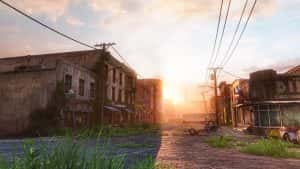
Last week, game studio CD Projekt Red announced via social media that their latest game, Cyberpunk 2077, one of this year’s most highly anticipated titles, was having its release delayed for a third time, pushing it back until November 2020.
On the Friday of the same week, developer Naughty Dog finally released their latest title, The Last of Us 2, which had originally been scheduled to come out in February 2020, but had to be pushed back twice.
While these events occurred separately, there’s one thing that connects them.
CyberPunk and TLOU2 have both suffered significant delays to their release.
Now, this in and of itself isn’t really that significant.
However, the fact that, in the massive online debate as to whether delays to these games should be greeted as positive news, or as a negative development, there seemed to be more voices in favour of the former than ever before, is.
Could today’s gamers be becoming more tolerant of delays than they have been in the past?
“I wouldn’t say I was necessarily expecting it,”, says Daniel Cole, a junior programmer at Sunderland-based game studio Coatsink, of his reaction hearing most of the games he was looking forward to playing this year have been delayed, continuing: “but to see companies less reluctant to come out and say, you know, we’ve got to put the game back a month, six months, a year, it’s not really a surprise any more.”
Cole, who lists both CyberPunk and TLOU2 among his most anticipated games of this year, acknowledges that working within the games industry has changed how he personally views these kinds of delays.

“I don’t necessarily think it’s more tolerant, but I see delays in a different way now.”, he says, “I sort of understand why games get delayed now. You know, it might be funding, it might be not enough time, it might be not enough people.”
Frida Arntsen, a concept artist at VR studio and virtual production company Dimension, has also experienced this: “I definitely think that my perspective has changed for the better since I started working in games. I had no idea how much time and energy goes into bug testing, fixing glitches, and finding inconsistencies in the game even after it’s done.”
However, historically, the penalty game companies have faced for delaying their games hasn’t come from those in the industry, but from fans outside of it, frustrated by having to wait just that little bit longer to get their hands on a game.
So what, if anything, could have changed their perspectives on delays?
Some might argue it’s the work of games journalists like Jason Schreier, making the gaming community more aware than ever before of the sheer amount of work and stress that goes into making today’s AAA games, with developers coerced into working massively long hours to meet arguably unsustainable deadlines.
However, Cole doesn’t believe this is the case: “I don’t think they particularly care about crunch, I think for general audiences the issue is more quality of game. They think that with the delay they’re going to get a better quality game, a more polished game, a more complete game and I think that’s the reason that generally they’re more tolerant nowadays.”
Author Callum Huscroft echoes this: “The way I see it is more time spent on development and polish in turn leads to a better finished product, whereas a rushed game will always leave a sour mark even after being patched and updated.”
Cole believes releasing a quality game at launch is just as important as ever to the companies today, especially those making online games: “I think with multiplayer games you’ve got to have a really good game there at the start because your whole, your whole thing is is based around having a community there to play your game. If it’s a single player game, you can probably get away with it more, because I think with a lot of single player games people just wait until the patches are out anyway.”
However, for games that are seemingly afforded more leeway when it comes to delays, Cole believes that a number of factors can influence this, including the reputation of the company behind the game: “I think CD Projekt Red probably get a lot more leeway than most companies do because they’ve got a lot of goodwill from The Witcher 3 being such a good game.”

Arntsen says that she often used to view many larger game companies “as these cold businessy companies with no face, because they’d almost never post any pictures or talk about their staff to show off their company culture” and therefore it was easier for her to rationalise criticising them.
Regardless of this, Cole believes that if they decide to delay a game, companies should make an effort to do this as soon as possible: “If you’re getting down to sort of a week to go and having to announce it’s delayed, it is going to show very negatively for you.”
He also adds that having deadlines like this managed well is massively important for developers like him: “I think some people respond very well to pressure and having that set deadline says, you know, we have to get this done by then or it’s not gonna work, but I think you can also say that the deadlines can be too short, like you can be way too ambitious for your release dates and that can backfire on you.”
Odds are we’ll never live in a world where every gamer views game delays positively, but for now at least, it would seem that more people than ever are adopting Arntsen’s mindset of trying to give “every game franchise, company, or genre as much leeway as they want and can afford to when it comes to delays.”
For fans of games like CyberPunk 2077, all they’re really hoping is that what they eventually get will have been worth the wait.



